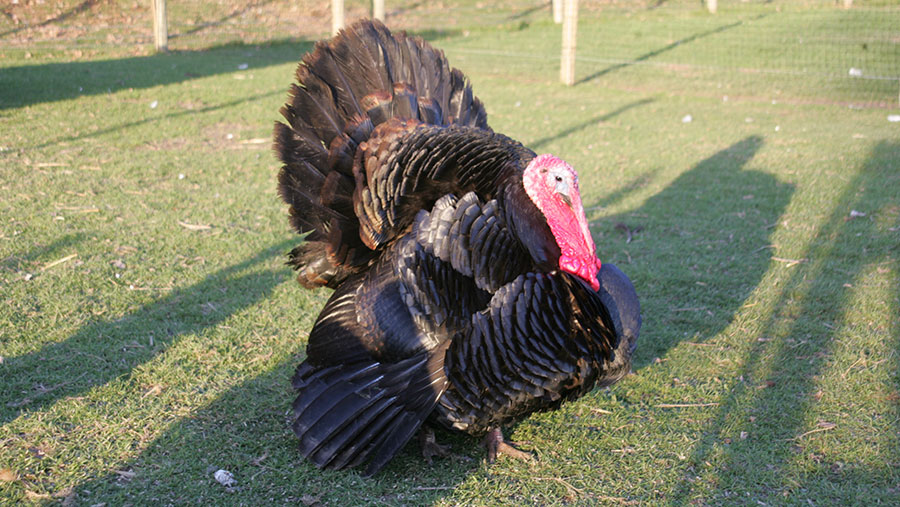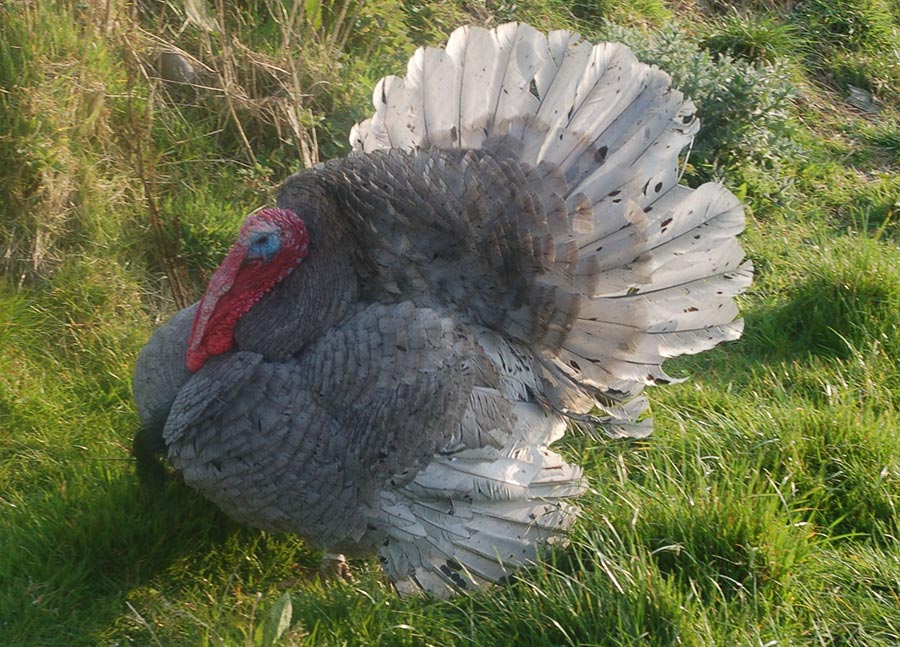Leg health better in native-breed turkeys, research finds
 © RBST
© RBST Native-breed turkeys have shown better leg health and meat tenderness in a comparison with commercial birds, new research has found.
Eight native-breed turkeys – Norfolk Black and Slate breeds – were compared to a test set of 20 commercial birds, with measurements taken at 12 and 18 weeks for the commercial strains in order to benchmark meat quality in the native breeds.
Norfolk Black turkey breast meat was found to be more tender than commercial turkey breast meat.
See also: Fears grow that large turkeys could be wasted this Christmas
Tenderness was measured as the force exerted on the sample in order to elicit a representative change in tension.
Bone strength was assessed by measuring tibia and femur strength/kg of bird weight.
The research project was led by Nottingham Trent University’s Professor Emily Burton and Rare Breeds Survival Trust (RBST) head of conservation Professor Philippe Wilson, also a professor in the School of Animal, Rural and Environmental Sciences at the university.
RBST is encouraging turkey farmers to consider the commercial advantages of using native breeds.
Reduced lameness losses
Christopher Price, RBST chief executive, said: “First, stronger leg bones can reduce the losses from lameness that are an ongoing concern for many commercial turkey businesses.
“Second, the improved tenderness of the native-breed turkey is appealing for consumers, particularly as the trend grows for eating less meat but choosing high-quality products that are sourced locally and reared in high-welfare systems.”

Slate turkey © RBST
There are 11 native breeds of turkey on the RBST Watchlist for rare poultry, including the Slate, Norfolk Black and British White breeds.
Prof Emily Burton said: “While native breeds of livestock such as these turkeys are rare, this is not because they are not good food sources.
“It is because not many are kept and they take a long time to grow when compared to their commercial friends.
“We need commercial turkeymeat for the market, and this suggests that while these strains are excellent as being batch produced and offered to consumers, native-breed turkeys can also be a tasty alternative, and are good, strong birds.”
